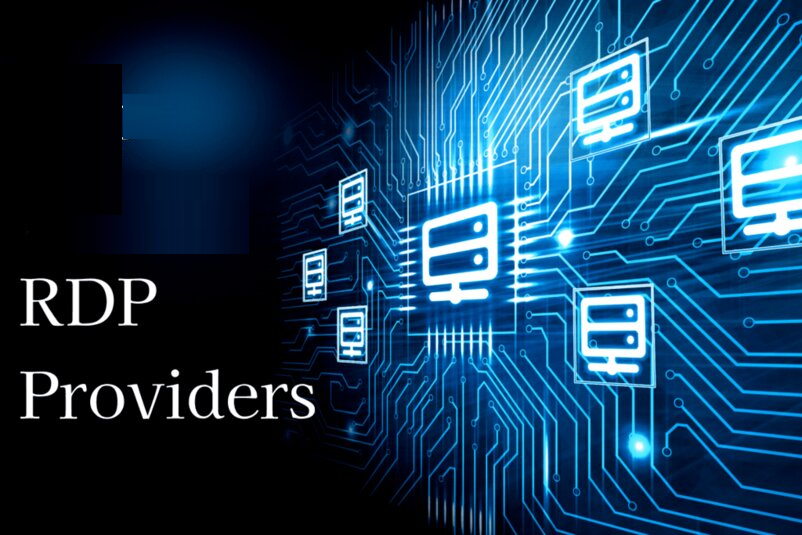RDP providers are the middleman in between an organization and its provider of software or services. They help organizations to manage and contract with their providers, make decisions about which software or service to use, and manage billing and other communication between the provider and the organization.
- What is an RDP Provider?
- The Benefits of using an RDP Provider?
- What are the different types of RDP Providers?
- The Pros and Cons of Selecting an RDP Provider?
- Who Should Use an RDP Provider?
- Final Word
What is an RDP Provider?
An RDP provider is a software application that resides on your computer and helps you manage your remote desktop connection. It allows you to connect to other computers over a network and work with them as if they were local computers. Some providers offer full-fledged desktop access, while others only provide access to specific applications.
The Benefits of using an RDP Provider?
There are many benefits to using an RDP provider, including saving time and money, faster access to resources, increased security, and easier collaboration. Here are a few of the most important reasons to consider using an RDP provider:

- Saved Time and Money: Many businesses are struggling with how to spend their limited budgets, but using an RDP provider can help reduce the amount of time they need to spend on tasks that cannot be done in-person or over the phone.
- Faster Access to Resources: With an RDP provider, you can quickly connect to available resources without having to go through lengthy conversations with each individual user. This can save you time and energy while also reducing the chances of meeting someone who is not available or who is more than happy to help.
What are the different types of RDP Providers?
Now that you know what types of RDP providers exist, it’s time to take a closer look at what each one offers. There are many different types of RDP providers available on the market, so it can be hard to decide which one is right for your business. Here are six of the most common types:
- Hosted RDP Provider: A hosted RDP provider provides an on-demand platform that lets you access and manages your RDP sessions through their website or app. This type of provider is often more affordable and easier to use than compared to commercial options.
- ISA Server Provider: ISA servers provide the infrastructure and software necessary to run RDP sessions. These providers can be used by smaller businesses or startups who don’t have enough resources to build their own servers or network.
- Remote Desktop Gateway: A Remote Desktop Gateway acts as an intermediary between your local computer and the remote target computer, providing security, configuration management, and other features that may be useful when connecting from multiple devices or locations. Gateways can offer additional benefits such as secure multi-factor authentication or data compression for faster connections over mobile networks.
The Pros and Cons of Selecting an RDP Provider?
There are a variety of benefits and drawbacks to choosing a RDP provider. Here are five key factors to consider:
1) The provider’s support staff: Provider support staff can help you with anything from configuration problems to resolving issues Buy Admin RDP with your software. They’re also a valuable resource when it comes time to troubleshoot problems.
2) The quality of the connection: Make sure that the provider you select has a good connection speed and quality. If you’re using a high-speed broadband connection, it may be worth considering a higher-quality RDP provider.
3) The price: Price is an important factor in determining whether or not you’ll find a good deal on RDP providers. Be sure to compare rates before making your decision.
Who Should Use an RDP Provider?
Remote Desktop Protocol (RDP) is an information-sharing protocol used to access and share files and applications over a network. It was originally designed for use with Microsoft Windows NT but has been ported to other platforms. Cheapest RDP is well-suited for use by small businesses and home users who want to connect to their work or home computers from anywhere in the world. However, it is not suitable for larger companies or institutions that have large fleets of devices that need to be connected all at once.
Choosing the right RDP provider: A buyer’s guide
Choosing the right RDP provider can be a daunting task, but with the help of this buyer’s guide, you should have no trouble finding one that meets your needs.
First and foremost, it is important to determine what type of buy RDP connection you need. Is it for remote access to individual machines or for hosting corporate applications? If you are just looking for a simple remote desktop solution, there are several free providers available. However, if you require support for high-end features such as video conferencing or real-time collaboration, then a paid service may be better suited.
Once you have determined the type of RDP connection that is required, it is important to consider the features offered by each provider.
Final Word
In conclusion, RDP providers offer a wide range of services that can be helpful to businesses. They can provide a variety of resources and tools to help businesses manage their RDPs, as well as support them during the initial implementation and ongoing management.


